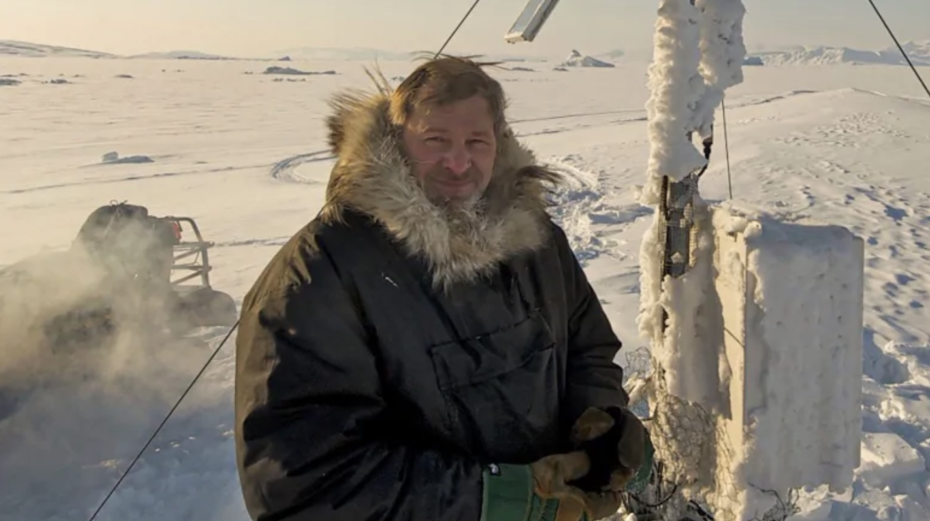
Wayne Pollard, a professor in the Department of Geography, has been named the recipient of the 2020 Northern Science Award and the Centenary Medal. Overseen by Polar Knowledge Canada, a federal government agency, the Award is presented annually to an individual or a group who has made a significant contribution to meritorious knowledge and understanding of the Canadian North.
“Dr. Wayne Pollard, Professor of Geography at McGill University, is recognized as one of the world’s finest northern scholars. Over the course of his career he has generated substantial new knowledge of northern geocryology, and of the geomorphology and hydrology of permafrost,” says the Polar Knowledge citation. “His work has also brought new understanding of Antarctic environments, and of processes affecting permafrost-influenced landforms on Mars.”
Pollard has been the director of the McGill Arctic Research Station (MARS) since 1990. Located on Axel Heiberg Island, just below Ellesmere Island in Nunavut, it is one of the oldest university research centres to operate in the Canadian Arctic. Its location has offered insight into the capacity of microbial organisms to survive in extremely harsh conditions, work that eventually led to a partnership with the Canadian Space Agency and NASA to aid in the search for water, and potentially life, on other planets with extremely cold climates.
In addition to his work at MARS, Pollard also heads the McGill Subarctic Research Station in Schefferville, Quebec, and is a veteran of multiple research explorations in Antarctica with international scientific teams.
Commitment to collaboration
The Polar Knowledge citation also praised Pollard for “his strong commitment to collaboration and the sharing of knowledge.”
“He has trained and mentored countless students and early career scientists. Leading by example, and in a spirit of kindness and generosity, he has inspired a new generation of researchers with his passion for polar research and his extensive and multifaceted expertise.”
In addition to his research and teaching at McGill, Pollard has also provided courses for the Nunavut Arctic College Teacher Education Program (NTEP), delivered science camps for Inuit high school students, and run workshops for Inuit science teachers.
Community partnerships
Pollard’s community involvement did not go unnoticed by the Northern Science Award selection committee.
“Dr. Pollard has built and maintained relationships with northern community members, governments, and non-governmental organizations, and has made significant contributions to Inuit and northern Cree teacher education programs,” said the Award citation. “He has also been active in educating the southern public about the Canadian Arctic and its critical scientific issues.”
“Dr Pollard’s work has been transformational both for the knowledge he has generated, adding to Canada’s profile as an international leader in polar science, and for the lasting impact he has had on the lives of others studying and living in Northern Canada.”
This time last year, Pollard was awarded the Weston Family Prize for Lifetime Achievement in Northern Research. The Weston Prize recognizes his nearly four decades of research in Canada’s North and in particular, his investigations into the permafrost that underpins the landscape in this remote region.
